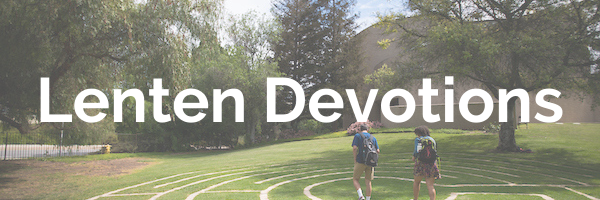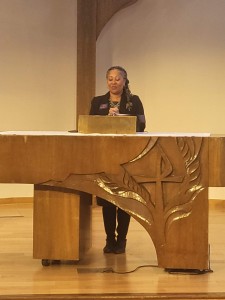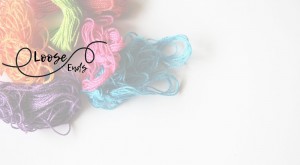
Ask, Search, Knock
“Ask, and it will be given you; search, and you will find; knock, and the door will be opened for you. For everyone who asks receives, and everyone who searches finds, and for everyone who knocks, the door will be opened.”
(Matthew 7:7-8 NRSV)
In this stanza of the Bible, Jesus reminds readers and believers alike, (1) how we should pray and (2) the attitude we should have while our petitions are being considered.
Here, we are reminded of the essence of a prayer. We are instructed that when we reach out and connect with God for Divine intervention, we are in fact making requests or appeals for something that is not. By praying to God, we are actively hoping, wishing, yearning, and longing for some ‘thing,’ condition, or reality that is not available in the present or ‘now’ of the appeal.
During Lent, Christians tend to delve inward, giving up indulgences, and becoming more reflective as the time draws near to celebrate the resurrection of Jesus Christ. As a Spirit-filled Catholic with family in Louisiana, we observe Fat Tuesday, Ash Wednesday, and the next 46 days and nights prayerfully anticipating Easter Sunday. During this time, I tend to revitalize my prayer life with Matthew 7:7-8 as my continual guide.
I say continual because Matthew 7:7-8 has been instrumental all my life, ever since I was able to read the Bible tracks my grandmother pressed into my hands every summer. I have even had the verse inscribed on the back of electronic devices to remind me that I not only need to connect to God on a regular basis, but that only by inviting God into my life, only by actively pursuing Him, and only by putting forth effort to signal to God that I am committed to my petition; will my request be fully considered.
The second part of the verse goes on to say that for those who ask, seek, and knock, each one will receive, find, and have doors opened. What the second verse doesn’t make clear, however, are the conditions for manifestation of the prayer.
In my experience, it has not been about ‘what’ we ask for rather the “how” and “why” of the ask, whether what we are in search of is in alignment to our highest greatest good according to the will of God, and the condition of our hearts when we approach Divine grace.
In my spare time, I teach and practice yoga, meditation, and reiki for which I have each been trained and certificated. These complimentary alternative modalities have been a part of my life since 2016, a year after being diagnosed with stage IV cancer. The #selfcare tools, coupled with an active prayer life, have been instrumental in my restorative healing journey, which I now have the benefit to share with others. All glory and praise for my atypical healing journey be to God!
Normally, before a yoga, meditation, or reiki session students are asked to identify a Sankalpa or an intention, something that they would like to see manifesting or unfolding in their lives as result of their practice. As you can well imagine by now, I have seamlessly woven the language of Matthew 7:7 into every single class that I teach.
First, toward inclusivity, and interfaith leanings, I invite them to connect to God, Source, Spirit, the Highest Power or Vibration, or Energy as Light in whatever way makes sense to them personally.
Second, I ask that they breathe this connection in through the crown of their heads and as they exhale to let everything else go down through their feet, taking a few breaths until they feel centered and grounded.
Third, after I see they are connected, I invite students to identify their intention or Sankalpa in the Sanskrit language for class. I say, “identify what it is you would like to get out of this class. What is it that you would like to achieve or attain as result of your practice?” As a part of the invitation, I then say very clearly, “Ask, seek, knock as each one of you are connected to Source right now in real time. Your practice is an active prayer mode. Now is a good time for you to co-create with Source, co-manifest what it is you would like to work towards as an outcome of your practice today.”
Fourth, as the class or session draws to close, I have students return to their Sankalpa or intention— and to check-in with Source in gratitude for whatever God has unfolded or is unfolding for them in their lives.
Intentionally connecting to God prior to the “ask” is essential. Seeking or searching sometimes requires time. This might be few breaths or a few days—whatever it takes to activate faith and belief that God is there and listening. Finally, action or movement toward the “ask” as if the prayer has come to pass is the knocking or the signal to God that we are serious about our prayer, intention, or Sankalpa; even to the point of ending our petition in thanks. It’s like saying,” Thank you God for taking the time to consider my request.”
In my personal, professional, and spiritual practice, the words of our Lord Jesus Christ as reflected in Matthew 7:7-8 continue to provide guidance, peace, and direction for my prayer, personal, and professional life. I find more satisfaction in the unfolding of every aspect of my being and have found these verses to be both Universal and practical.
In closing, I hope you can find ways to harness their sweet, powerful, and instructive energy in your life as well!
And finally I invite you to take a moment identify your Sankalpa or intention for the rest of the Lenten season, week, or day?
 Dr. Lorri Santamaría holds a PhD in Bilingual Multicultural Special Education from the University of Arizona. Her professional career has taken her from Cal State San Marcos as a full professor in the College of Education, to the University of Auckland New Zealand as the Head of School for the School of Teacher Preparation, and most recently here to Ventura County since 2017 as the Director and principal investigator for the Healing the Soul project at the Mixteco/Indígena Community Organizing Project, which many of us will know by its acronym MICOP. Dr. Santamaría has numerous publications within the scope of this position, including, among others, the books Applied critical leadership: Choosing change and Culturally responsive leadership in higher education: Praxis promoting access, equity and improvement.
Dr. Lorri Santamaría holds a PhD in Bilingual Multicultural Special Education from the University of Arizona. Her professional career has taken her from Cal State San Marcos as a full professor in the College of Education, to the University of Auckland New Zealand as the Head of School for the School of Teacher Preparation, and most recently here to Ventura County since 2017 as the Director and principal investigator for the Healing the Soul project at the Mixteco/Indígena Community Organizing Project, which many of us will know by its acronym MICOP. Dr. Santamaría has numerous publications within the scope of this position, including, among others, the books Applied critical leadership: Choosing change and Culturally responsive leadership in higher education: Praxis promoting access, equity and improvement.
- Dr. Lorri Santamaría
Director of Faculty Development and Inclusive Excellence

